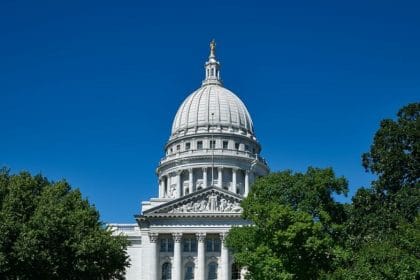Michigan Passes $465 Million COVID-19 Relief Stimulus Package

LANSING, Mich. – Today, the Michigan state legislature passed Senate Bill 748, a bipartisan bill that provides $465 million in COVID-19 economic relief from state and federal tax revenues. The spending plan was passed earlier today in Michigan’s state House of Representatives after being passed 35-2 in Michigan’s GOP-controlled state Senate last week.
The package will include relief payments for furloughed workers and struggling businesses, as well as funds for vaccine distribution and more. The bill is expected to be approved by Michigan governor Gretchen Whitmer in the coming days.
According to the text of the bill, approximately $443 million will be appropriated from Michigan’s state general fund while nearly $22 million will come from federal revenues.
Of the major appropriations outlined in the bill, some of the stimulus funding will include:
- $220 million for unemployment
- $55 million in small business survival grants
- $51 million for COVID vaccine distribution and testing
- $45 million in grants for workers laid off or furloughed in business impacted by restrictions
When broken down further, the $220 million for unemployment will include an extension of unemployment benefits up to 26 weeks for struggling Michiganders, a six-week increase from the previous cap of 20 weeks.
The $55 million allocated for small business survival grants will benefit Michigan businesses who have experienced income loss as a result of Michigan’s recent Gatherings and Face Mask Order, the state’s latest measure of restricting the spread of COVID-19.
Survival grants given to small businesses will vary in amount depending on how long they have been closed due to the state’s order.
For businesses that have been closed for the duration of the gatherings and face mask order can receive up to $20,000 in grant money from the state. On the other hand, if they have only been partially closed during the order, then businesses can receive a maximum of $15,000 in grants.
According to S.B. 748, businesses receiving a survival grant will be expected to spend the grant on “payroll expenses, rent, mortgage payments, utility expenses or other similar expenses.”
Besides the $51 million allocated for vaccine strategy use, the Michigan legislature also approved a continuation of the state’s $2 hourly wage hike for health care workers at hospitals and nursing homes. The wage hike will help frontline workers starting January 1, 2021 through to February 28, 2021.
For workers who have been laid off or have been furloughed in recent months due to the pandemic, individuals will be eligible to receive up to $1,650 from the employee assistance fund under the Michigan Department of Treasury.
In addition to these line items, the legislation will also provide $3.5 million in grants for concert and live-entertainment venues, with a maximum of $40,000 allocated to eligible venues.
The latest round of COVID-19 relief is an expansion of Whitmer’s previous ask of $100 million last month.
“I proposed this stimulus plan to the legislature in November because I know how much our families, frontline workers, and small businesses need relief as we head into the winter,” stated Whitmer in a public statement.
“This bipartisan relief bill will provide families and businesses the support they need to stay afloat as we continue working to distribute the safe and effective vaccine and eradicate COVID-19 once and for all.
“There is still more work to do to beat this virus and grow our economy,” continued Whitmer.
“This bill does not mark the end of the fight against COVID-19, but it is another critical step in helping Michiganders battle the virus and survive the repeated shutdowns of our economy,” said the legislation’s sponsor, Michigan Senate Appropriations Committee Chairman Jim Stamas, in a public statement.
“This budget bill provides critical support to the workers and small, family businesses who have been left behind by their government and extends a lifeline right when they need it the most,” said Michigan Republican House Speaker Lee Chatfield in a public statement.
“People are worried about the effects of the latest shutdown and what it means for their families,” continued Chatfield.
“We are listening and looking for ways to help. Of course, the best way to help people is to follow the science and safely and securely reopen Michigan’s schools and small businesses.
“Until that happens, we will continue to fight for the people we represent, support working families with our votes and ensure everyone can continue to make ends meet,” stated Chatfield.
























